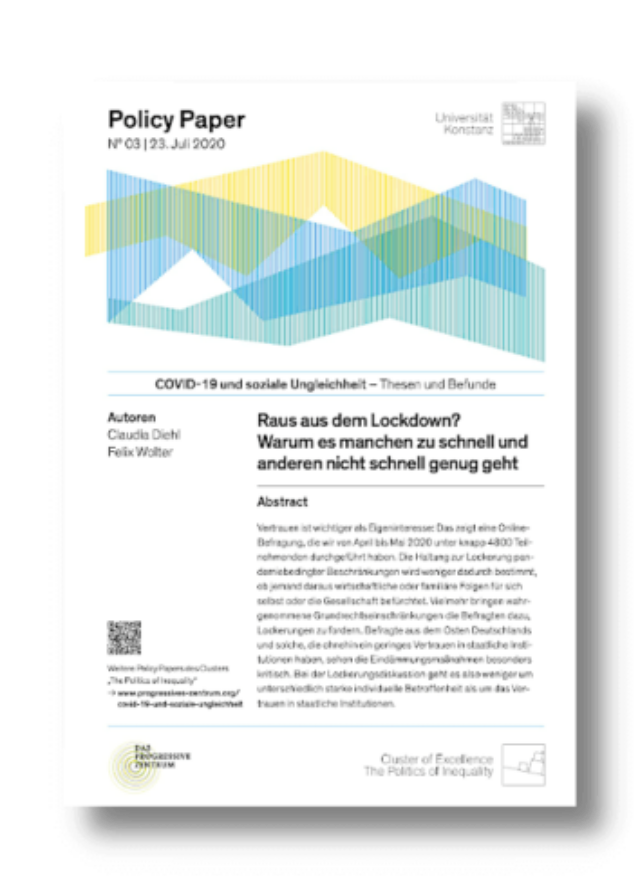Summary
Trust matters more than self-interest: Our survey conducted among roughly 4,800 participants in April and May 2020 shows that the discussion about easing restrictions is not so much about the varying degrees to which individuals are affected, but rather about the degree of trust in public institutions in general.
Winning support for Corona rules
The measures to control the coronavirus have led to widespread restrictions for different parts of society. Main political actors have made appeals for solidarity to win support for the corona restrictions. In Germany, numerous financial compensation measures have been issued, such as the so-called “child bonus”.
However, the present study raises doubt on whether such instruments increase support for restrictive measures. After all, feeling threatened by the restrictions either economically or regarding one´s family hardly has any influence on the (dis-)approval of rules that aim at containing the spread of the virus.
Main findings
- Respondents believe the restrictions will have a much more serious impact on society at large than on their personal circumstances. Due to containment measures, only 10 percent feel threatened personally in the area of family life, only 15 percent perceive a personal economic threat (job loss or financial hardship), and about 23 percent fear an infringement on their own basic rights.
- The corresponding values for perceived sociotropic threats are much higher: 51 percent (family), 56 percent (economy), and 32 percent (basic rights), respectively.
Authors

Content


This policy paper was published by the Cluster of Excellence “The Politics of Inequality” of the University of Konstanz in cooperation with Das Progressive Zentrum.

We develop and debate progressive ideas and bring together leading actors who turn thoughts into action. Our think tank’s goal: making the just transformation a reality. ▸ Learn more


